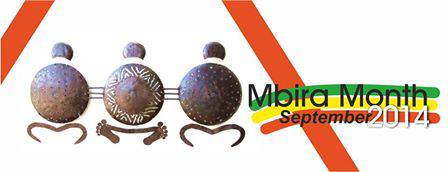Murmures

English
Why are Africa’s best ideas invested in by foreigners and not Africans themselves? This is one of the searching questions asked by top medical practitioner, Dr Solomon Guramatunhu, at the Mbira Centre in Harare, last night.
The leading eye surgeon was making his remarks as guest of honour at the official opening of the 2014 edition of Mbira Month. This is the third year running that Mbira Month has been held.
“Can you imagine a Germany that did not invest in classical music? An India that did not invest in Indian music? Or an America that did not invest in Jazz or Blues or Rock?” Asked the doctor. “Why is mbira attracting so much international attention and yet so little institutional attention and investment from Zimbabwe?”
Guramatunhu’s answer to this is that we were taught by the colonialists to despise our own culture. He surmised, “According to William Lynch, the American slave owner [after whom the word ‘lynching’ was created], total control of the slave for the next three hundred years could be achieved by simply controlling three things; The slave’s history, culture and religion. For the Shona, the mbira embodies all three things. Therefore the significance of the mbira cannot be overemphasized.”
In other words, we do not value the mbira because the people whose opinion we respect- the Western cultures – have not told us it is valuable. We do not teach it to our children because the colonialists did not make it part of the curriculum.
And that is where Mbira Month and the various programmes run by the Mbira Centre come in; to get Zimbabweans to value this important part of their culture and history.
One of the key programmes, the ‘Mbira in Schools’ project aims to get 10 000 mbiras into Zimbabwean schools with the understanding that if we can teach our children to respect and love the mbira, they can take it to places and levels this generation cannot even conceive.
Already the first 50 mbiras are ready for distribution.
A jam-packed line up of events for Mbira Month will include a presentation of a new mbira playing and teaching app by South Africa based Zimbabwean software developer, Godfrey Mungadze, events at Pariah State, Misty’s Lounge, The Book Café and Londoners Sports Bar.
This morning, September 4, Culture Fund Director, Farai Mpfunya, will give a public lecture on ‘Zimbabwe’s Mbira Opportunities in a Global Environment’.
A number of other talks and workshops are also scheduled. At the end of the month, Dzimbanhete Arts Interactions will host a Mbira Sunsplash which will feature up to 30 mbira bands.
Next week, in Canada, a Mbira Aesthetics Art Exhibition, kicks off and will feature a live performance by Mbira Renaissance.
Also speaking at the launch, Albert Chimedza, founder of the Mbira Centre, echoed Guramatunhu’s sentiments that it was important that we embrace the value of the mbira as part of who we are and teach our children, not necessarily to all play it, but to understand its significance.
About 100 invited guests from the media, arts & culture, government, business and civic society attended the launch.
At last year’s launch, another respected Zimbabwean medical doctor, the leading neurosurgeon and current Mbira Month board chairperson, Dr Nozipho Maraire spoke about how she managed to attain her medical degree primarily because of money that her uncle, the late, famous mbira maestro, Dumisani Maraire, earned from his work as a mbira player, teacher and activist.
Incidentally, next week Zimbabwe’s leading musical icon, Oliver Mtukudzi, speaking at the inaugural Hugh Masekela lecture, will talk about how important it is to hold on, even as our culture evolves, to the key things that make us unique as Africans; our language, our music and our core values.



